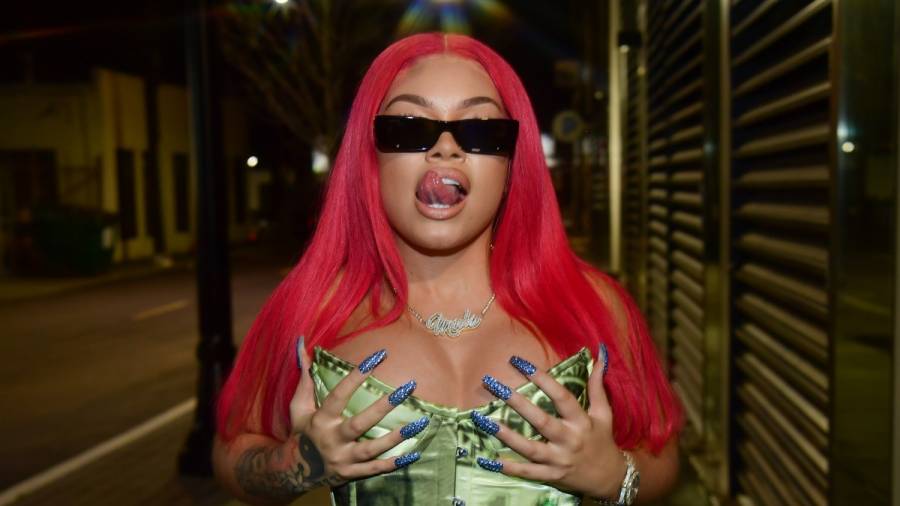ATLANTA, GA – Ever since Mulatto turned down the So So Def chain offered to her, the “Muwop” rapper has blossomed into the “Big Latto” we’ve learned to love.
The 21-year-old has been putting in work for over 11 years. Starting out as a child star and now maneuvering as a young adult in the industry, Mulatto’s lyrics have grown raunchier, her image has more sex appeal and she’s now collaborating with the biggest names in the game such as Nicki Minaj, Cardi B., Gucci Mane, Boozie Badazz and more.
During an interview with HipHopDX at the 2020 BET HipHop Awards, the “He Say She Say” artist hinted at possibly changing her controversial stage name from Mulatto to her alternate-nickname Big Latto.
“I can’t say too much because we’re working on something right now, but I would be lying to say it hasn’t crossed my mind before,” Mulatto told DX. “It is a controversy that I hear and see every day as far as my name goes, so I would be lying to say no I never thought of that. But I can’t say too much because right now, because it’s going to be a part of something bigger.”
2020 has been a major year of growth for Big Latto. Some of her pivots this year were collaborating with one of her favorite rappers Gucci Mane on a rendition of his classic “Freaky Girl” hit, making a cameo in Cardi B’s “WAP” video and having her breakout single “Bitch From Da Souf” get a gold certification from the Recording Industry Association of America (RIAA). Many would also agree it was Big Latto’s bars during the 2020 XXL Freshman Cypher that made the freestyle session viral. The moment was highlighted with just one bar name-dropping Fivio Foreign.
When asked if Fivio took it further than the bars, her response was simple. (“I don’t know it was an on-set thing, as a creative it’s what we do, it’s wordplay.”)
Mulatto came on the scene in 2016 as the winner of Jermaine Dupri‘s Lifetime show, The Rap Game. The young spitter caught a lot of attention, not only for her impressive rap skills but also her controversial stage name. The term “mulatto” originates from a reference used to define hybrid offspring of a horse and a donkey. It then became the term of “mixed” children deriving from an era when Black people were treated like livestock and raped by their white slave owners, creating bi-racial children.
Despite the sordid history, Mulatto stuck to her guns about why she wouldn’t change her alias and also how she was reclaiming the racial slur “mulatto” as it means something to her as a “mixed” child of a Black father and white mother. In the first season of The Rap Game, Mulatto touched on why she felt strongly about keeping her alias as-is.
“I’m passionate about my race,” she said, 15 years old at the time. “I’m Miss Mulatto. The term mulatto technically is a racist slur. It means someone that’s half black and half white. So it’s, like, controversial. I took that negativity from the word mulatto and now…everybody calls me Miss Mulatto. Why do I have to choose one or the other? I’m both. That’s what I want to go by.
“My mom was pregnant with me when she was 15 years old. She went to a majority white school so of course her being 15 years old, pregnant by a Black man, that was just too much for them to handle. So many people doubt you … oh, she’s not going to be able to do this, she’s a mutt, oh, she can’t do this. I have to show this is what I’ve been working for. I’m ready for this. Let’s go.”
At this rate, 2021 will be another elevation year for her career. Mulatto’s debut studio album Queen of Da Souf is out now. Stream it below.

